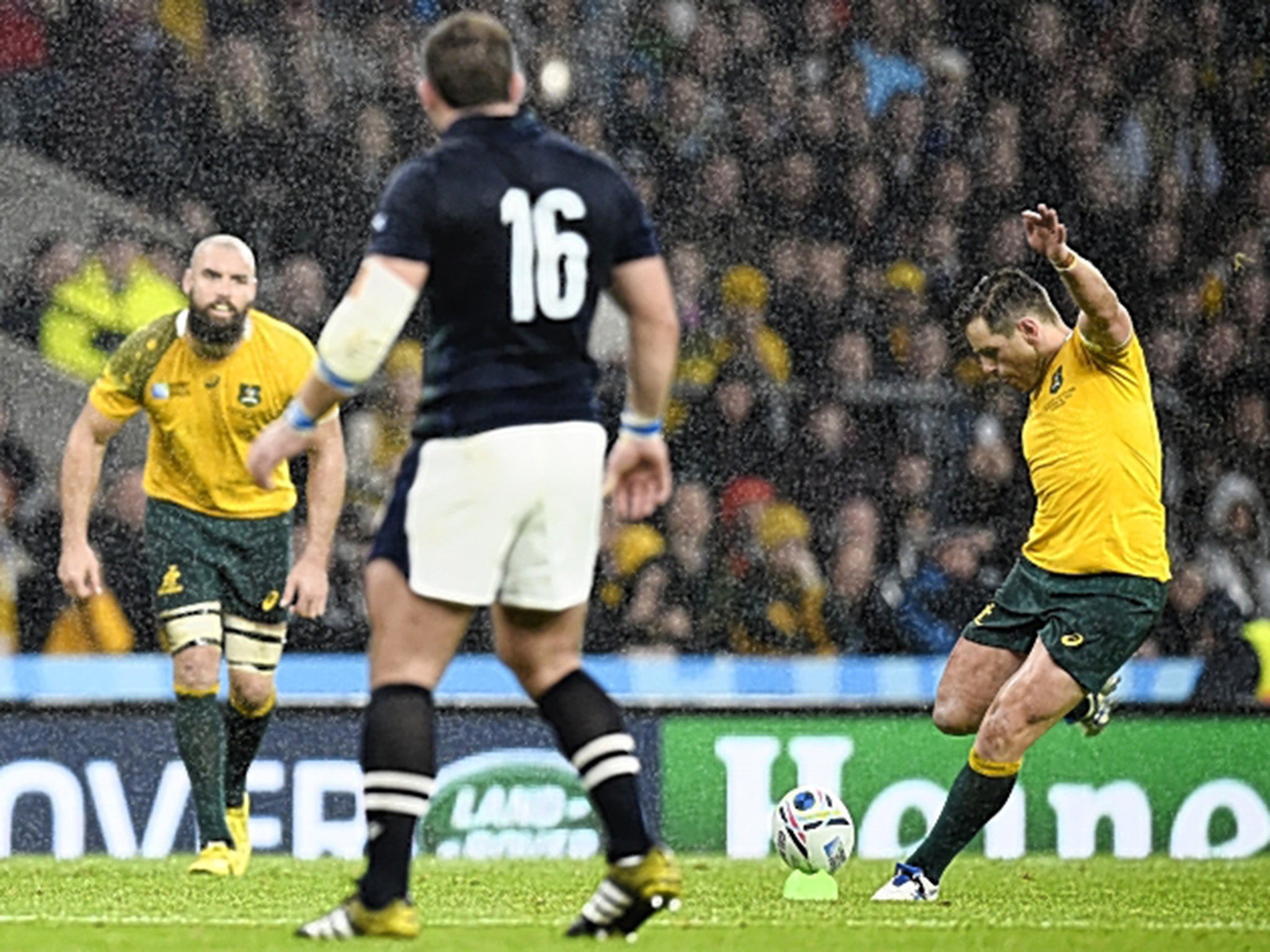Australia 35 Scotland 34: 'I didn’t have a chance to speak to the ref, he was off so quick,' said Greig Laidlaw
Australia march on to the Rugby World Cup semi-finals

Your support helps us to tell the story
From reproductive rights to climate change to Big Tech, The Independent is on the ground when the story is developing. Whether it's investigating the financials of Elon Musk's pro-Trump PAC or producing our latest documentary, 'The A Word', which shines a light on the American women fighting for reproductive rights, we know how important it is to parse out the facts from the messaging.
At such a critical moment in US history, we need reporters on the ground. Your donation allows us to keep sending journalists to speak to both sides of the story.
The Independent is trusted by Americans across the entire political spectrum. And unlike many other quality news outlets, we choose not to lock Americans out of our reporting and analysis with paywalls. We believe quality journalism should be available to everyone, paid for by those who can afford it.
Your support makes all the difference.History was the very last thing on the minds of Vern Cotter, the Scotland coach, and Greig Laidlaw, the magnificently resilient scrum-half who leads the team on the field, as they reflected on the painful events at Twickenham yesterday. It did not register with them that this is officially the least successful World Cup of them all for European rugby – that each and every semi-finalist hails from the southern hemisphere.
And who could blame them for their lack of sweeping perspective? The fine detail of what happened at the back end of the most gripping quarter-final since France did for the All Blacks in 2007 – perhaps since the Wallabies beat Ireland in the last minute in Dublin almost a quarter of a century ago – was still uppermost in their minds, largely because they were struggling to come to terms with it.
“We were one kick away from a World Cup semi-final and arguably, we should be in it,” said Laidlaw. “This Scotland team is a different one to that which played in the Six Nations. We have the makings of a special side. Apart from that, I don’t know what to say.”
Laidlaw would have said plenty to the South African referee Craig Joubert in respect of the last decisive penalty call of the match – a decision that gave Bernard Foley the chance to win the game at the death for the Australians. Frustratingly from the Scot’s point of view, he had no option but to keep his opinions to himself.
“What did I say to the referee at the end? I didn’t have a chance to say anything, he was off so quickly,” he remarked, referring to Joubert’s uncanny impersonation of Usain Bolt in leaving the field at a rate of knots.
Cotter, the granite-faced New Zealander whose light-touch coaching has transformed Scotland from Six Nations wooden-spooners to a competitive side on the world stage, was reluctant to commit himself either way. “It’s important to review the end of the game properly,” he said – a clear indication that he will make the most careful of studies the moment his body temperature returns to normal.He was more forthcoming on his sympathy for the Scotland players. “We found ways of staying in the game against a very good side and I’m proud of them,” he commented. “This is a hard one to take.”
Meanwhile, the Wallaby coach Michael Cheika was the very model of composure. “After many years of after-match reactions and perhaps saying the wrong things, I’ve learned that you have to live with the ones that go your way and live with the ones that don’t,” he remarked. “I’ve become quite neutral on these topics. You just have to deal with it.”
Join our commenting forum
Join thought-provoking conversations, follow other Independent readers and see their replies
Comments